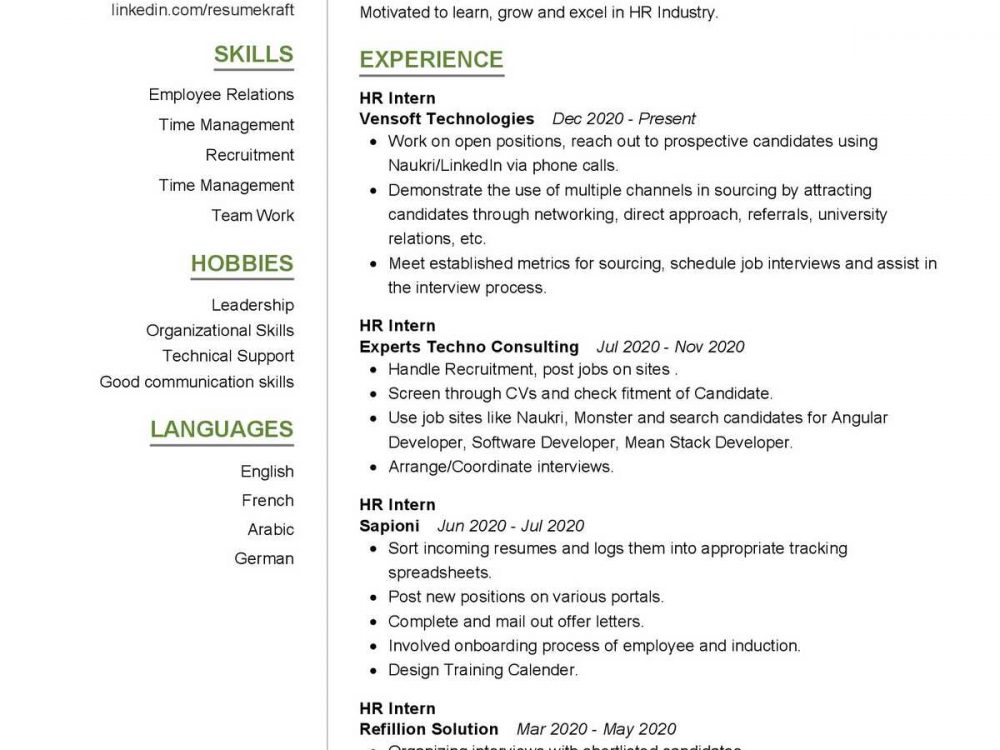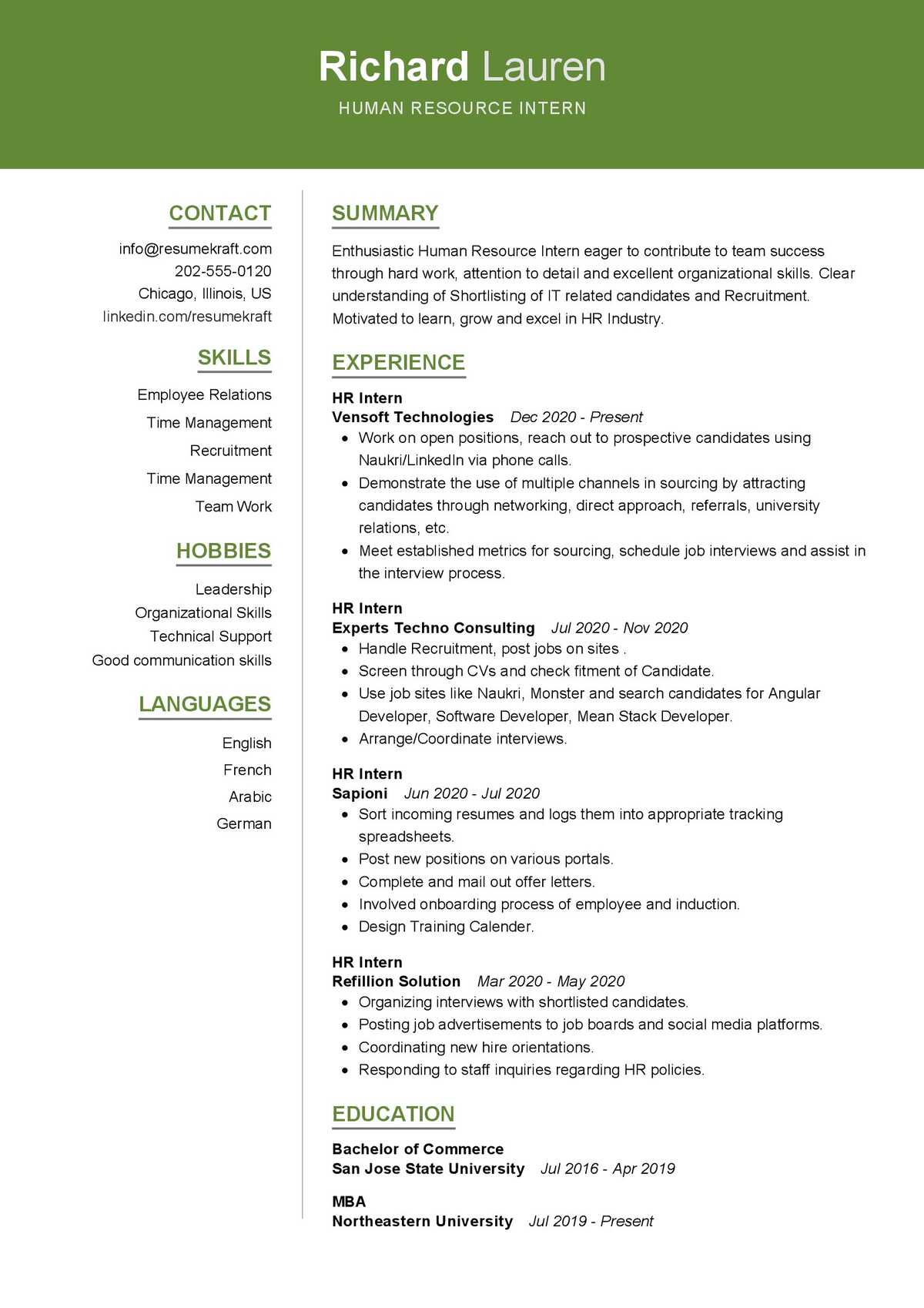How to write a Human Resource Intern Resume
It’s an exciting time to be a Human Resources intern. The field is hot, and you can expect to find yourself in high demand when you graduate. While that means your resume must be nothing short of perfect, don’t let it intimidate you!
With the help of this article and our step-by-step guide for resumes and cover letters, you’ll have no trouble customizing your resume for success.
Write with passion
Your resume is one of a few tools you’ll use to convey your enthusiasm and professionalism to potential employers. Showing that you have the passion for this career is essential. Keep in mind, however, that your cover letter will give you the chance to elaborate on some of your more interesting resume sections.
In the meantime, you can make your resume more impressive by including some of your own work. If you have compiled a portfolio or have some other type of project that shows off your skills, consider putting it at the beginning of your resume.
Know what to include
While there are no hard and fast rules about what should go into a Human Resources Intern resume and cover letter, chances are that most hiring managers will be looking for certain information.
For starters, it’s a good idea to include your contact information and professional history. Start with your name and contact info at the top of the resume, and then proceed to list previous companies and all related job experience. There are no HR resume templates, so you’ll have some freedom with this layout, but we recommend arranging by relevance of job title or industry.
Your education is also extremely important. Make sure to list any schools you attended (your name, graduation dates), as well as any relevant coursework or special honors.
If you have any professional or community organizations you’d like to include, be sure to include them so that hiring managers know you fit into their organization’s culture.
Tell the story
After all of your important information is on your resume, it’s time to move on to your experience section. Here you should start with brief descriptions of relevant experiences that demonstrate your key skills and traits. You may want to add in a few bullet points about accomplishments that show off your character or drive for excellence.
Underneath your experience section, you should have a section dedicated to your skills. Just because you’re interning doesn’t mean you aren’t bringing anything to the table. List a few key skills that are most relevant to the position for which you’re applying. But keep in mind, just because a skill is important does not mean it should be on your resume. If you have a lot of experience with something that an employer values, but aren’t currently using it in your internships or job, leave it off of your resume.
Tips to write a Human Resource Intern Resume:
- Think of your resume as a microcosm of your professional life.
- You’re not limited to the typical ¾” margins. Spread your resume out and include plenty of white space that will emphasize your skills and experience.
- What you include is more important than how it’s presented. While some HR professionals are looking for creative resumes, most just want to see relevant information arranged in an easy-to-read manner that appeals to them visually, as well as content-wise.
- Don’t include everything you’ve ever done just for the sake of it being on your resume. Focus on only the most relevant experiences in a clear and concise way.
- If possible, include an actual resume example of someone with your education and experience that you can emulate when getting started.
- Try to avoid cliches like “team player” and concentrate on quantifying the value you bring to the table with tangible skills like “increased revenue by 23% during my internship.”
- Your resume is the first impression you make to a potential employer, so don’t forget to make it the best possible version of itself.
- Remember that your resume is not just for potential employers. It’s meant to be a vehicle for promoting yourself to your network of professional contacts.
Human Resource Intern Education Qualification:
Candidates Must Have:
- A degree in Human Resources, Business Administration / Management or related field. (Candidates without a formal degree may be considered.)
- Work experience, preferably within HR or within a large corporation.
- Knowledge of the principles and practices of staffing and recruiting. (Preferably through experience.)
- Good written and oral communication skills (in English) with the ability to use both effectively in all types of business situations.
Conclusion:
The goal of a Human Resource Intern resume should be to build a strong foundation on which you can continue to build your career. Keep your resume simple and straight-forward, focusing on the skills that are vital to success in this field. Include all experience that applies, even if you only worked a summer job or class job while in college.
Remember that your resume is one of the first steps to securing the Human Resource Intern position you want. To learn more about how to make your resume stand out among others, click here.


